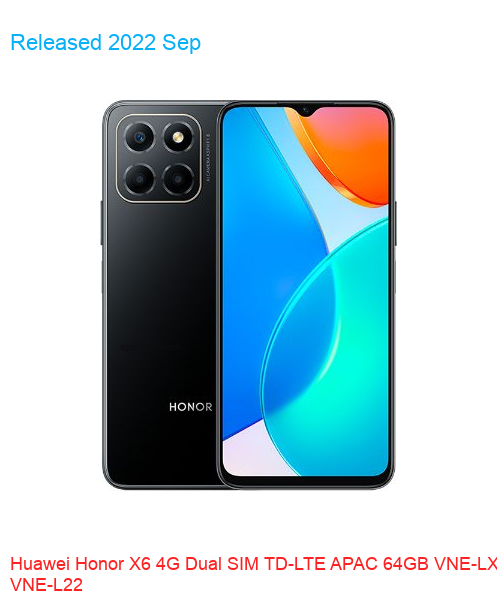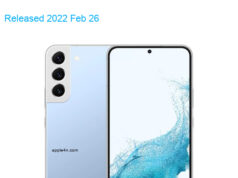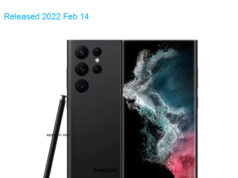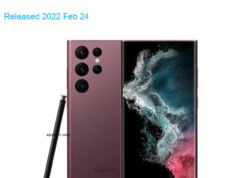| Brand | Huawei |
| Model | Honor X6 4G Dual SIM TD-LTE APAC 64GB VNE-LX2 / VNE-L22 |
| Released | 2022 Sep |
| Announced | 2022 Sep |
| Hardware Designer | Huawei |
| Manufacturer | Huawei |
| Codename | Huawei Vinnie 4G |
| General Extras | Haptic touch feedback |
| Device Category | Smartphone |
| Width | 75.13 mm |
| Height | 163.66 mm |
| Depth | 8.68 mm |
| Dimensions | 2.96×6.44×0.34 inches |
| Mass | 194 g |
| Platform | Android |
| Operating System | Google Android 12 (S) |
| Software Extras | Voice Command , Navigation software , Intelligent personal assistant , Face Recognition |
| CPU Clock | 2001 MHz |
| CPU | MediaTek Helio G25 MT6762G, 2020, 64 bit, octa-core, 12 nm, IMG PowerVR GE8320 GPU |
| RAM Type | LPDDR4x SDRAM |
| RAM Capacity (converted) | 4 GiB RAM |
| Non-volatile Memory Interface | eMMC 5.1 |
| Non-volatile Memory Capacity (converted) | 64 GB ROM |
| Display Notch | 1-notch |
| Display Diagonal | 165 mm |
| Resolution | 720×1600 |
| Horizontal Full Bezel Width | 7.42 mm |
| Display Area Utilization | 82.9% |
| Pixel Density | 270 PPI |
| Display Type | Color IPS TFT LCD display |
| Number of Display Scales | 16.8M |
| Display Refresh Rate | 60 Hz |
| Scratch Resistant Screen | Yes |
| Graphical Controller | IMG PowerVR GE8320 |
| GPU Clock: | 650 MHz |
| A/V Out | No |
| Microphone(s) | stereo |
| Loudspeaker(s): | mono |
| Audio Output: | 3.5mm |
| Supported Cellular Bands | GSM850 , GSM900 , GSM1800 , GSM1900 , UMTS2100 (B1) , UMTS1900 (B2) , UMTS850 (B5) , UMTS900 (B8) , LTE2100 (B1) , LTE1800 (B3) , LTE850 (B5) , LTE2600 (B7) , LTE900 (B8) , LTE800 (B20) , LTE700 (B28) , TD-LTE2600 (B38) , TD-LTE2300 (B40) , TD-LTE2500 (B41) bands |
| Supported Cellular Data Links | GPRS , GPRS C12 , GPRS MSC12 , EDGE , EDGE MSC12 , UMTS , HSUPA , HSUPA 5.8 , HSDPA , HSPA+ 21.1 , DC-HSDPA 42.2 , LTE , LTE 100/50 , LTE 150/50 data links |
| SIM Card Slot | Nano-SIM (4FF) |
| Complementary Phone Services | Voice transmission , Voice speaker , Vibrate , Speakerphone , ANC , HD Voice , VoLTE |
| Dual Cellular Network Operation | Dual standby |
| Sec. Supported Cellular Networks: | GSM850 , GSM900 , GSM1800 , GSM1900 , UMTS2100 (B1) , UMTS1900 (B2) , UMTS850 (B5) , UMTS900 (B8) , LTE2100 (B1) , LTE1800 (B3) , LTE850 (B5) , LTE2600 (B7) , LTE900 (B8) , LTE800 (B20) , LTE700 (B28) , TD-LTE2600 (B38) , TD-LTE2300 (B40) , TD-LTE2500 (B41) |
| Sec. Supported Cellular Data Links: | GPRS , GPRS C12 , GPRS MSC12 , EDGE , EDGE MSC12 , UMTS , HSUPA , HSUPA 5.8 , HSDPA , HSPA+ 21.1 , DC-HSDPA 42.2 , LTE , LTE 100/50 , LTE 150/50 |
| Sec. SIM Card Slot | Nano-SIM (4FF) |
| Touchscreen Type | Capacitive multi-touch screen |
| Expansion Interfaces | TransFlash , microSD , microSDHC , microSDXC |
| USB | USB 2.0 |
| USB Services | USB charging , USB Host , USB OTG 1.3 , USB PD |
| USB Connector | USB C reversible |
| Max. Charging Power | 10.0 W |
| Bluetooth | Bluetooth 5.1 |
| Wireless LAN | 802.11a , 802.11b , 802.11g , 802.11n , 802.11ac |
| Wireless Services | Wi-Fi Direct , Wi-Fi Tethering , WiDi , Wi-Fi Calling |
| FM Radio Receiver | No |
| Complementary Satellite Services | Simultaneous GPS , A-GPS , Geotagging , QuickGPS |
| Supported GLONASS protocol(s) | L1OF |
| Supported Galileo service(s) | E1 |
| Supported BeiDou system (BDS) | B1I BeiDou receiver |
| Camera Placement | Rear |
| Camera Image Sensor | BSI CMOS |
| Number of effective pixels | 50.3 MP camera |
| Aperture (W) | f/1.80 |
| Zoom | 1.0 x optical zoom |
| Focus | PD AF |
| Video Recording | 1920×1080 pixel |
| Flash | single LED |
| Camera Extra Functions | Pixel unification , HDR photo , Red-eye reduction , Burst mode , Touch focus , Macro mode , Panorama Photo , Face detection , Face tagging , Smile detection , Face retouch |
| Aux. Camera Image Sensor | CMOS |
| Aux. Cam. Image Sensor Pixel Size | 1.75 micrometer |
| Aux. Camera Number of Pixels | 1.9 MP aux. cam |
| Aux. Camera Aperture (W) | f/2.40 |
| Aux. Camera Extra Functions | HDR photo , Burst mode , Macro mode |
| Aux. 2 Camera Image Sensor | Mono CMOS |
| Aux. 2 Camera Number of Pixels | 1.9 MP aux. 2 cam |
| Aux. 2 Camera Aperture (W) | f/2.40 |
| Aux. 3 Camera Image Sensor | No |
| Aux. 4 Camera Image Sensor | No |
| Secondary Camera Placement | Front |
| Secondary Camera Sensor | CMOS |
| Secondary Camera Number of pixels | 5.0 MP sec. cam |
| Secondary Aperture (W) | f/2.20 |
| Secondary Video Recording | 1920×1080 pixel |
| Secondary Camera Extra Functions | HDR photo , Burst mode , Macro mode , Panorama Photo , Face detection , Face tagging , Smile detection , Face retouch |
| Sec. Aux. Cam. Image Sensor | No |
| Built-in compass | Yes |
| Built-in accelerometer | Yes |
| Additional sensors | FP sensor , L sensor , P sensor |
| Protection from solid materials | Yes |
| Protection from liquids | Yes |
| Battery | Li-ion polymer (LiPo) |
| Nominal Battery Capacity | 5000 mAh battery |
| Market Countries | Egypt , India , Malaysia , Pakistan , Philippines , South Africa , Thailand , UAE |
| Market Regions | Africa , Oceania , Southeast Asia |
| Price | 260.97 USD |
| Added | 2025-02-08 |
Specifications data description of this 📱Huawei Honor X6 4G Dual SIM TD-LTE APAC 64GB VNE-LX2 / VNE-L22📱
Title: Huawei Honor X6 4G Dual SIM TD-LTE APAC 64GB VNE-LX2 / VNE-L22: A Comprehensive Overview
Introduction:
Welcome to our blog post about the Huawei Honor X6 4G Dual SIM TD-LTE APAC 64GB VNE-LX2 / VNE-L22. This device is a powerhouse of technology and innovation, and we’re excited to share its features with you. Whether you’re a tech enthusiast or someone looking for a reliable and high-performance smartphone, the Honor X6 has got you covered.
Lineup:
The Honor X6 is part of Huawei’s mid-range lineup, offering a balance between affordability and performance. It comes with a sleek design, a powerful chipset, and a long-lasting battery, making it a great choice for users who want a feature-packed device without breaking the bank.
Design:
The Honor X6 has a premium and stylish design, with a glass front and a plastic back. It has a 6.5-inch display with a resolution of 1600 x 720 pixels, providing clear and vibrant visuals. The device also has a fingerprint scanner on the back, making it easy to unlock with just a touch.
Specifications:
🌐 Network: The Honor X6 supports 4G Dual SIM TD-LTE APAC, providing fast and reliable connectivity.
📅 Launch: The device was launched in 2021, making it a relatively new addition to the market.
🏋️ Body: The Honor X6 weighs 185 grams and has dimensions of 164.7 x 75.9 x 8.9 mm, making it a comfortable fit for most hands.
🌈 Display: The device has a 6.5-inch IPS LCD display with a resolution of 1600 x 720 pixels and a pixel density of 269 ppi.
🤖 OS: The Honor X6 runs on Android 10, with Huawei’s EMUI 10.1 skin on top.
🛠️ Chipset: The device is powered by the MediaTek Helio P35 chipset, providing a smooth and lag-free experience.
💪 CPU: The chipset includes an octa-core processor with a clock speed of up to 2.3 GHz.
🖥️ GPU: The Honor X6 features the PowerVR GE8320 GPU, providing excellent graphics performance.
🎮 Memory: The device comes with 4GB of RAM and 64GB of internal storage, which can be expanded up to 512GB via a microSD card.
📷 Camera: The Honor X6 has a dual-camera setup on the back, with a 13-megapixel primary sensor and a 2-megapixel depth sensor. The front camera has an 8-megapixel sensor.
🔈 Sound: The device features a single speaker, providing decent sound quality.
📡 Comms: The Honor X6 supports Wi-Fi 802.11 a/b/g/n/ac, Bluetooth 5.0, GPS, and a USB-C port.
💡 Features: The device includes a number of features, such as a fingerprint scanner, face unlock, and a 3.5mm headphone jack.
🔋 Battery: The device has a massive 5000mAh battery, providing long-lasting battery life.
Conclusion:
The Huawei Honor X6 4G Dual SIM TD-LTE APAC 64GB VNE-LX2 / VNE-L22 is a powerful and feature-packed device that offers excellent value for money. With its sleek design, high-performance chipset, and long-lasting battery, it’s a great choice for anyone looking for a reliable and feature-rich smartphone. We invite you to leave a comment and share your thoughts on the Honor X6!
Note:
Please note that the specifications may vary depending on the region and the model. It’s always advisable to check the specifications of the device before purchasing.








